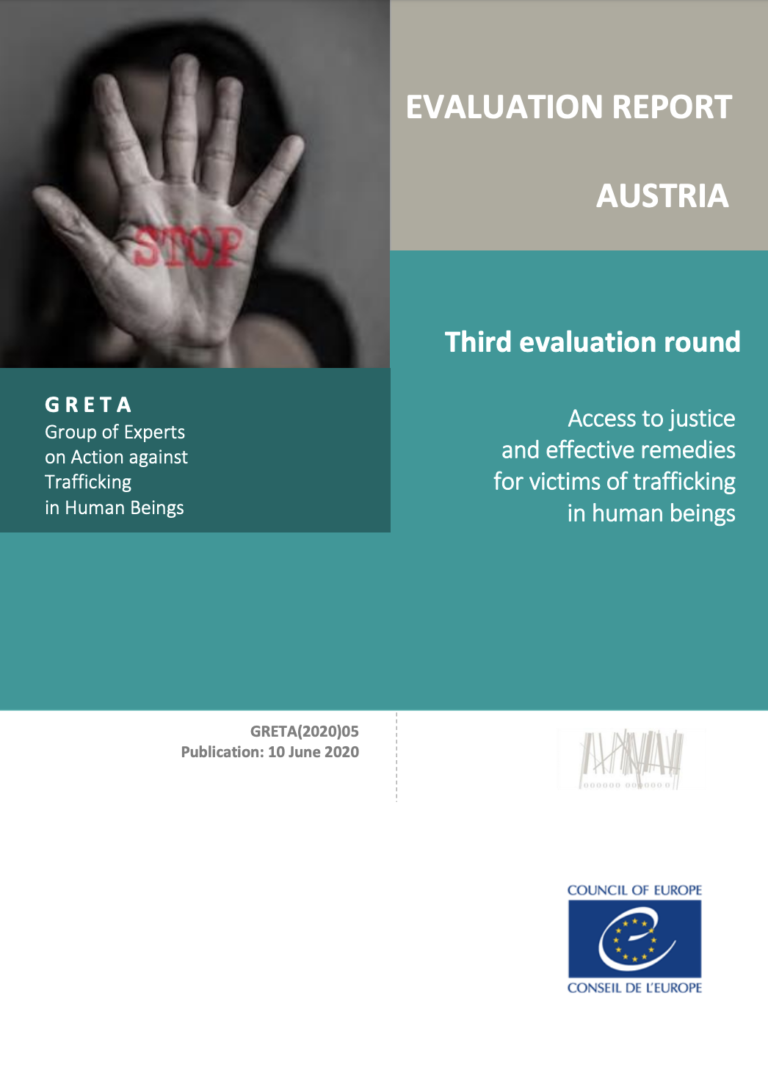In its third report on Austria, the Council of Europe’s Group of Experts on Action against Trafficking in Human Beings (GRETA) analyses trafficking victims’ access to justice and effective remedies and examines progress in the implementation of previous GRETA recommendations.
The report acknowledges that Austria has further developed the legislative and policy framework for combating human trafficking. Guidelines specifying the role of the federal states in the fight against human trafficking were developed, a working group on human trafficking was set up in the City of Vienna, and regional co-ordinators were appointed in Tyrol and Vorarlberg. In 2016, practical guidelines on identifying potential child victims of trafficking were adopted. In February 2017, the Federal Ministry of Justice issued an internal decree aimed at raising awareness of the non-punishment provision, which provides for the possibility of not imposing penalties on victims for their involvement in unlawful activities, to the extent that they have been compelled to do so. Further, in 2018, the Federal Ministry of the Interior issued an internal decree with instructions on how to proceed in cases of trafficking.

